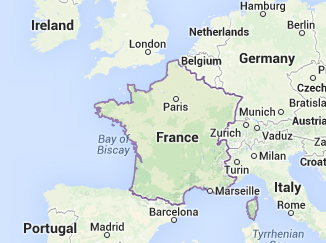PARIS – Former French health minister Agnes Buzyn was charged Friday over her handling of the Covid-19 pandemic after investigators at a special court in Paris concluded there were grounds to prosecute her.
Buzyn has been charged with “endangering the lives of others”, the prosecutor of the Republic’s Court of Justice said, but not for a second possible offence of “failure to stop a disaster”.
The former doctor, who will be able to appeal the charge, arrived for a hearing at the court on Friday morning saying she welcomed “an excellent opportunity for me to explain myself and to establish the truth.”
The 58-year-old added that she would not “let the action of the government be discredited, or my action as a minister, when we did so much to prepare our country for a global health crisis that is still ongoing.”
The charges are a blow for President Emmanuel Macron, whose handling of the health crisis will face scrutiny during election campaigning next year, but the court also immediately faced allegations of judicial overreach.
Former prime minister Edouard Philippe and current Health Minister Olivier Veran are also being investigated by magistrates at the court and have seen their offices searched.
The ruling will likely stir a debate about the blame and responsibility for the spread of Covid-19, which caught governments, many health experts and the World Health Organization by surprise as it began spreading from China in early 2020.
The disease has killed more than 4.5 million people worldwide so far.
Ridicule
Buzyn, who resigned from her post in February last year, weeks after the first Covid cases were confirmed in France, has faced criticism and ridicule over her initial statements about the pandemic.
She said initially in January 2020 that there was “practically no risk” of importing Covid-19 from the Chinese city at the origin of the outbreak, Wuhan, and then said the “risk of a spread of the coronavirus among the population is very small”.
A month later, as she left the ministry to launch a failed bid to become Paris mayor, she claimed that “the tsunami has yet to come”, in an apparent contradiction of her earlier statements.
The cancer and transplant specialist later told a parliamentary investigation that she had alerted the president and then prime minister Philippe to the potential “dangers” of Covid-19 as early as January.
France also faced a severe shortage of masks at the start of the pandemic and the government was inconsistent in its advice on face coverings, initially questioning their effectiveness, then mandating them in public spaces.
Anne Genetet, an MP from the ruling LREM party, said she was “shocked” and “angry” by the precedent set by the court, which has special powers to prosecute ministers.
“We shouldn’t be surprised if no one wants to enter politics anymore, or be a minister,” Genetet told the LCI channel.
Contested
The Republic’s Court of Justice was created in 1993 as a way of improving accountability due to perceptions that cabinet members were able to escape legal censure for their actions in office.
Members of the public are allowed to file complaints to the court if they consider they are the victim of a crime carried out by a member of the government.
Around 14,500 complaints — from individuals, doctors, associations and even prisoners — have piled up over the government’s handling of the pandemic, its top prosecutor said this week.
Some critics accuse the court of being too slow and lenient, while others see the current investigation as being an example of the justice system going too far.
Jean Garrigues, a French political historian who is often supportive of the government, called Buzyn’s appearance at the court “a serious blow to the separation of powers.”
“It’s up to voters and not judges to sanction a politician for their words and deeds,” he wrote on Twitter.
The court has become increasingly contested, with both former president Francois Hollande and incumbent Macron pledging to scrap it.
Buzyn quit politics and in January joined the cabinet of World Health Organization’s director-general Tedros Adhanom Ghebreyesus, who has also been under fire for his response to the pandemic.
